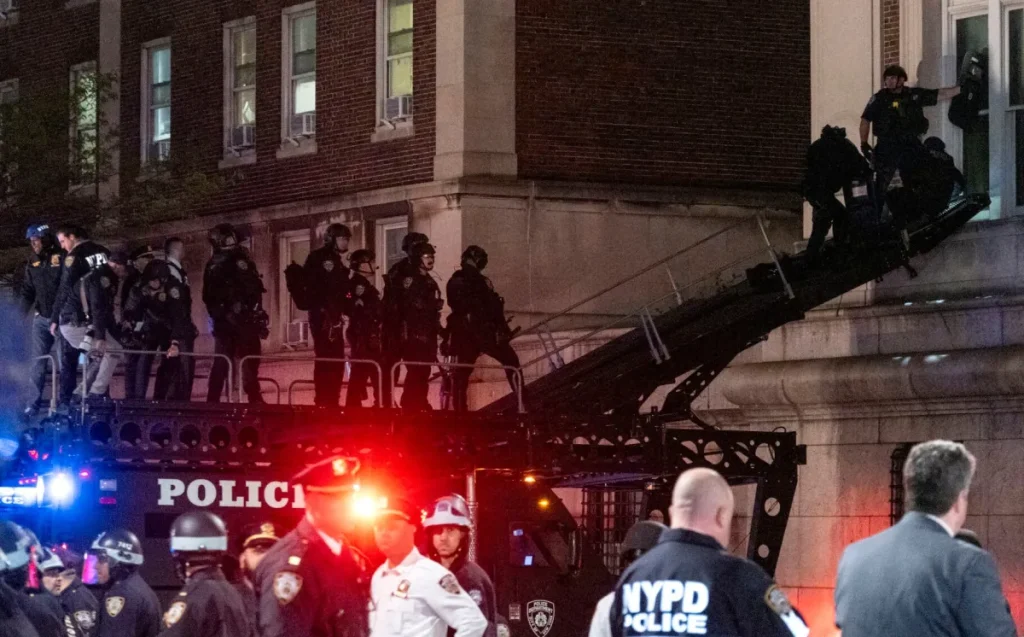In a chaotic series of events, opposing factions clashed violently on Wednesday, not only at the University of California, Los Angeles, but also at Columbia University. The clashes were marked by intense physical altercations, with protesters resorting to fistfights, shoving matches, and employing sticks as weapons.
At Columbia, the situation escalated as police intervened to disperse pro-Palestinian demonstrators who had commandeered a building to protest Israel’s war on Gaza. The crackdown mirrored similar actions taken at other universities across the nation, reminiscent of past student protests during the Vietnam War era.
The tension reached a peak at UCLA, where clashes between pro-Palestinian and pro-Israeli groups erupted near a makeshift encampment. Police intervention, though, eventually restored calm.

The spread of tent encampments advocating for divestment from Israel or companies supporting the conflict in Gaza has become a widespread phenomenon, mobilising students across the United States. However, the response from authorities has been forceful, resulting in several arrests and clashes with law enforcement.
The scenes of unrest were not confined to the campuses of elite universities. At City College of New York, tensions ran high as demonstrators faced off against police, with scenes of confrontation unfolding near the college’s main entrance.
According to the New York Police Department (NYPD), there were 282 arrests, 173 at City College and 119 at Columbia University.
In the face of mounting pressure, some universities have opted for negotiation rather than confrontation. Brown University, for instance, agreed to consider divestment from Israel following talks with protesters, signalling a potential shift in institutional responses to student activism.
More than 34,500 Palestinians have since been killed, and over 76,000 others have been injured. Israel has imposed a crippling blockade on the Gaza Strip, leaving its population, particularly residents of northern Gaza, on the verge of starvation.
Israel also stands accused of genocide at the International Court of Justice. An interim ruling in January ordered Tel Aviv to ensure its forces do not commit acts of genocide and take measures to guarantee that humanitarian assistance is provided to civilians in Gaza.
Amidst accusations of antisemitism and claims of outside interference, the underlying message of the protests—a call for justice and solidarity with the Palestinian cause—remains a point of contention. As authorities grapple with how to respond to these demonstrations, the voices of students demanding change echo across campuses nationwide, challenging the status quo and shaping the discourse on international affairs.


